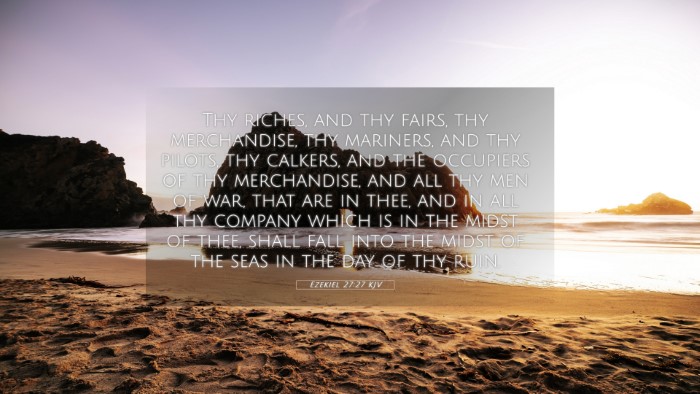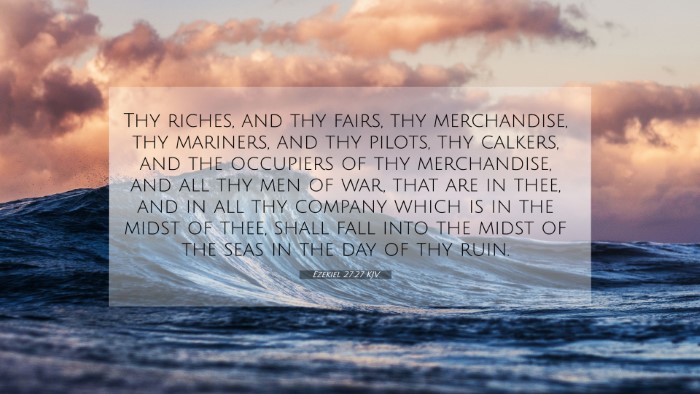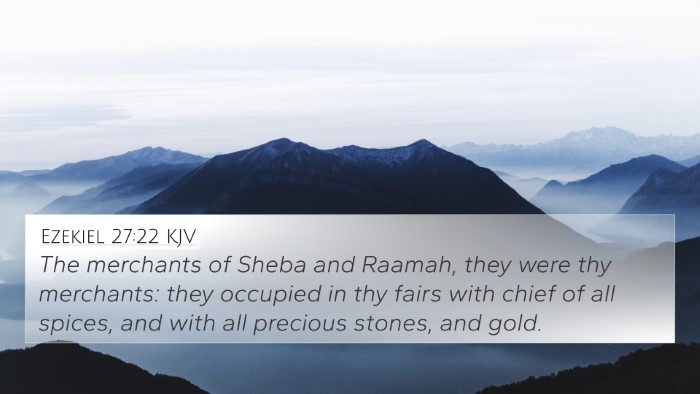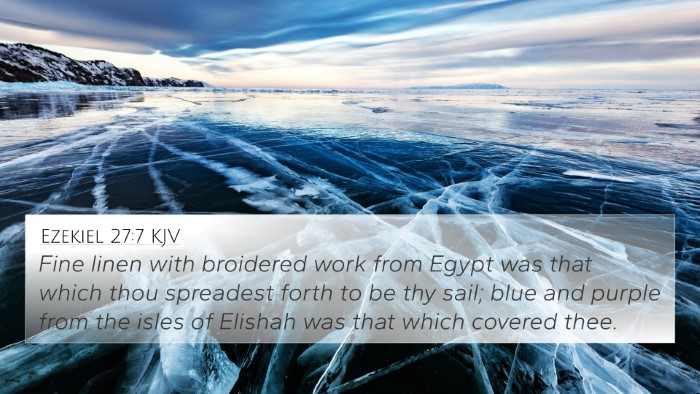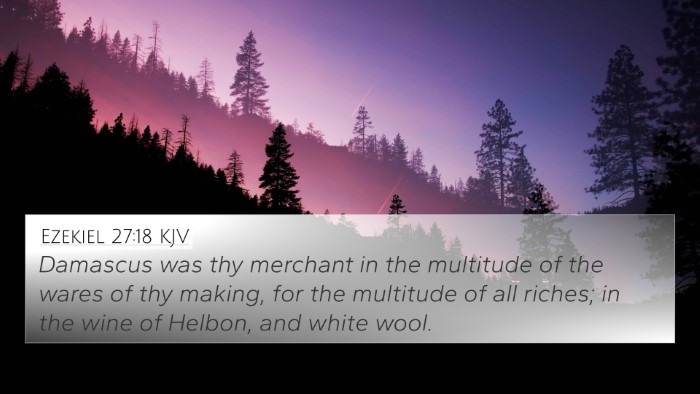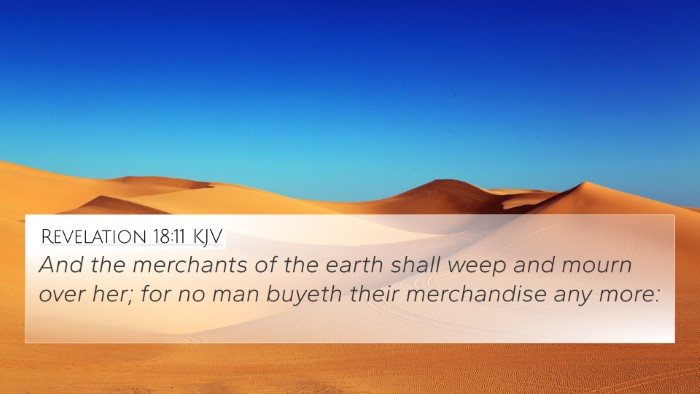Ezekiel 27:27 - Summary and Interpretation
Ezekiel 27:27 presents a powerful imagery of the downfall of Tyre, a symbol of pride and commercialism in ancient times. This verse reads: "Thy riches, and thy fairs, thy merchandise, thy mariners, and thy pilots, thy caulkers, and the occupiers of thy merchandise, and all thy men of war, that are in thee, and in all thy company which is in the midst of thee, shall fall into the midst of the seas in the day of thy ruin." As such, we delve into the multifaceted meanings as rendered by esteemed public domain commentaries.
Meaning and Insights
This verse emphasizes several themes regarding the judgment of God, commercial pride, and the inevitable downfall that arises from overconfidence in worldly wealth.
1. Judgment Against Pride
Matthew Henry comments on how God’s judgment is often directed towards nations and cities that exalt themselves, believing that their wealth and prosperity can withstand divine scrutiny. Tyre's downfall serves as a stark warning against the hubris that often accompanies great success.
2. Symbolism of Wealth and Security
Albert Barnes elaborates that Tyre, representing economic prosperity, also illustrates how earthly riches provide a false sense of security. When calamity strikes, as depicted in this verse, all that is perceived as secure can be taken away in an instant.
3. The Fragility of Human Endeavors
Adam Clarke suggests that the multitude of professions and trades listed in the verse serves to remind readers of the fragility of human endeavors. The skilled mariners, caulkers, and merchants symbolize a complex web of commerce that can be unraveled by divine decree.
Bible Cross-References
- Isaiah 23:1-18 - A prophecy against Tyre that echoes many of the themes found in Ezekiel's lament.
- Revelation 18:10 - The fall of Babylon, drawing parallels to Tyre's downfall as both serve as symbols of pride and materialism.
- Ezekiel 26:12 - The destruction of Tyre's wealth through the seizing of their riches and merchandise.
- Proverbs 11:28 - The principle that those who trust in riches will ultimately fall.
- Luke 12:16-20 - The parable of the rich fool illustrates the futility of storing earthly treasure without concern for spiritual wealth.
- James 5:1-3 - A warning to the rich, echoing the themes of judgment and the transience of material wealth.
- Jeremiah 47:4 - Prophetic judgments that symbolize the broader theme of divine retribution against nations.
Thematic Connections
The themes found in Ezekiel 27:27 resonate throughout the Bible, emphasizing the linking of biblical scriptures that warn against pride and reliance on wealth. This verse connects deeply with:
- Wealth vs. Humility - The juxtaposition of wealth accumulation with the necessity of humility before God.
- Judgment and Restoration - The cycle of judgment leading to eventual restoration seen across various scriptures.
- Destruction of Idols - The downfall of Tyre exemplifies the destruction of all that is idolatrous, including materialism.
Comparative Bible Verse Analysis
As we engage in a comparative Bible verse analysis, it becomes evident how the narratives of various nations—especially those steeped in pride and economic fortitude—draw a direct line to the moral lessons presented in Ezekiel.
Understanding through Cross-Referencing
For those studying this theme further, cross-referencing Biblical texts becomes essential. Tools such as a Bible concordance and Bible cross-reference guide can greatly aid in uncovering similar motifs and warnings within Scripture.
Conclusion
In summary, Ezekiel 27:27 is a poignant reminder of the transient nature of worldly wealth and the harsh reality of divine judgment against prideful nations. The insights drawn from Matthew Henry, Albert Barnes, and Adam Clarke provide a rich understanding that encourages introspection on the proper alignment of priorities in one’s life.
For those looking to deepen their understanding, we encourage exploring Bible cross-references for sermon preparation and studying the links between prophetic teachings and their New Testament fulfillments.

